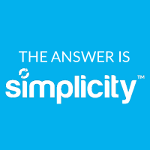With the fierce competition among companies aiming to attract top talent, how can you ensure a consistent influx of high-quality candidates for your roles? While being active on social media and networking in person can certainly help, job boards have become essential for any recruiter in today's landscape.
Here's how you can make the most of them:
Understanding Job Boards:
Previously, job openings were shared through traditional channels like job centres and classified ads in local newspapers. However, the internet has revolutionised this process, bringing job postings online, which is fantastic for recruiters as it opens doors to a much larger talent pool. A job board is a dynamic database of job opportunities, a convenient platform for companies to advertise their open positions and for job seekers to discover their next career move.
While companies advertise jobs on their websites and social media, job boards offer an invaluable and effective route to reaching potential candidates. Some of the UK's most popular job boards include Indeed, Reed, Monster, Jobsite, and CV Library. However, they face growing competition from platforms like Google for Jobs and LinkedIn Jobs.
The Necessity of Job Boards:
If you're questioning whether you should use job boards, the answer is a resounding yes. Job boards are among the top channels potential candidates use to find new job opportunities, making them an essential space for recruiters. These boards contribute significantly to job hires, accounting for about a fifth of job placements worldwide and nearly half of all job applications, second only to career sites.
It's crucial to note that while job boards are vital, they're not the only space where you need visibility if you search for candidates. A staggering 79% of job seekers utilise social media platforms when seeking new opportunities, with LinkedIn being the leading online job advertising platform globally.
Crafting Compelling Job Board Ads:
The performance of any ad you post on a job board heavily relies on how well it's written. Your goal is twofold: get the ad in front of the right candidates and make it appealing enough to prompt them to apply. This can be challenging for recruiters, who may need to strike a balance between sharing enough information to generate interest and omitting specific key details.
Getting this balance right is essential, as errors can result in a scarcity of applications or an influx of unsuitable candidates, both time-consuming and counterproductive. While some may be tempted to post fake job ads or continue advertising a filled position to identify potential candidates, such practices can harm your reputation and discourage candidates from engaging when you genuinely have roles to recruit for.
What to Include in Your Job Ad:
Starting with salary is crucial, as a job vacancy shared without salary information can lead to 66% fewer candidates applying. Other key considerations include:
- Salary
- Industry
- Geographic location
- Full-time, part-time, or hybrid work
- Office-based, home-based, or hybrid role
- The company's stance on flexible working
- Additional perks and rewards
Highlighting flexibility, improved pay, and job satisfaction—especially considering the rise of hybrid work as an employee preference—can be a significant selling point.
In Summary:
Job boards can be a recruiter's invaluable ally when used effectively. Remember that taking a little extra time to craft compelling ads can make a significant difference. Ultimately, a combination of strategies, including active participation on LinkedIn, in-person networking, and optimal utilisation of job boards, will secure a consistent stream of high-quality talent.








